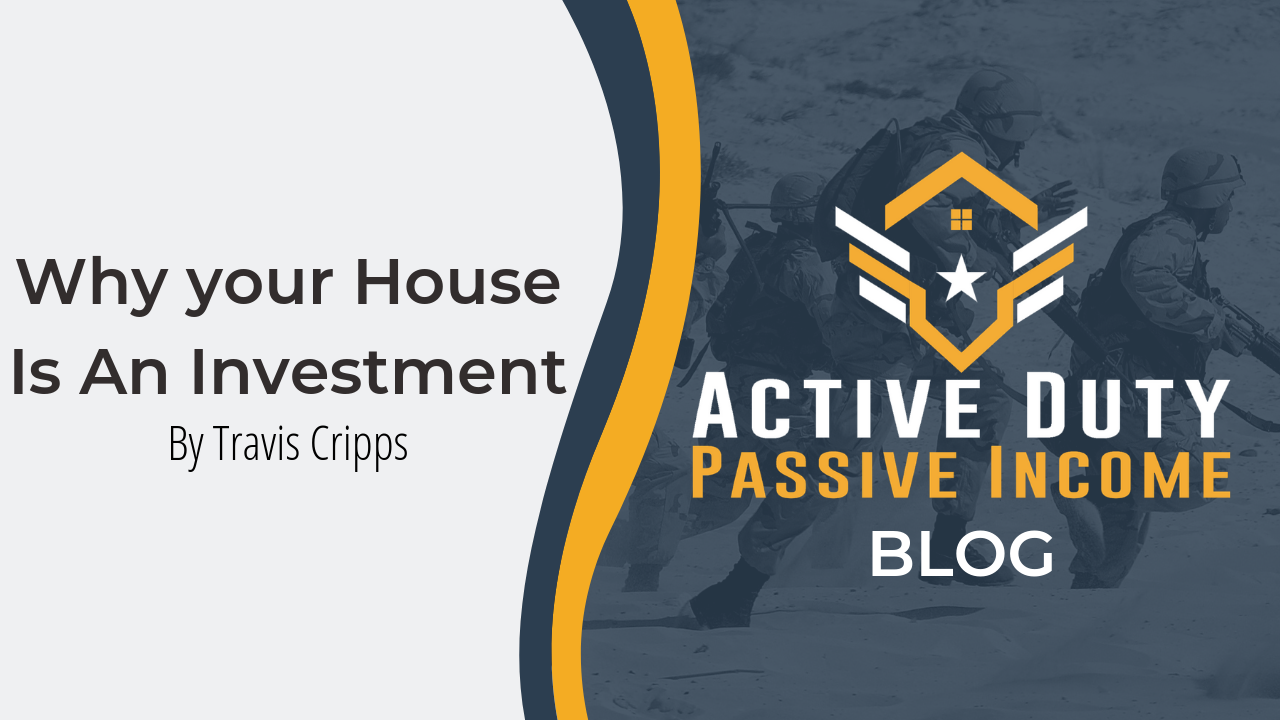Whether you are commonly reading financial blog posts or catching the occasional Grant Cardone video, you have probably heard the debate about home ownership. Some, like Warren Buffett, think buying with a 30-year mortgage can be an attractive option for many American families. Others, such as Grant Cardone, think buying your personal residence, especially a single family home, is a ridiculous proposition. Why is there such widespread disagreement? Who is right?
Like all things, it depends!
But let’s dive deeper into this and why I think your home is an investment.
To begin, let’s determine what an investment is. Merriam-Webster defines investment as, ” the outlay of money usually for income or profit.” The definition of profit is, “a valuable return,” or “net income usually for a given period of time.” To state that another way, using money in a meaningful way to increase NET income is an investment.
Home ownership IS an investment.
First, it is within an asset class (real estate) with a long standing history of appreciation.
Secondly, it is an asset backed by real property.
Third, ownership over the long term has the potential for significant increases in your household cash flow by locking your housing payment.
Let’s look at each of these a little closer.
1.Real Estate Has a Long History of Appreciation
When investing in real estate, it is impossible to predict future appreciation. Historically speaking, appreciation in home prices results in a positive yield by outpacing inflation. According to Investopedia, “A $100 investment in the average home (as tracked by the Home Price Index from the Federal Housing Finance Agency (FHFA)) in 1975 would have grown to about $500 by 2013. A similar $100 investment in the S&P 500 over that time frame would have grown to approximately $1,600.” In this 38 year period of time, it’s fair to say that stocks vastly outperformed homes. However, YOU NEED A PLACE TO LIVE. You cannot live in your stock fund. For that 38 year period of time, home owners enjoyed a 3.7% annual increase in value, slightly outpacing inflation. Renters lost 100% of their rent paid. That does not mean renting is always a bad option, more on this later.
2. Real Estate is An Asset Backed By Real Property
Calling your personal home an asset is definitely highly debated. Those in the Rich Dad, Poor Dad camp would discourage calling anything an asset if it doesn’t directly make you money. Those siding with Dave Ramsey or traditional banking would consider your house an asset based on its position on your balance sheet. For the average American family living paycheck-to-paycheck, a home may be a significant portion of their net worth. Do I think this will provide better returns than investment real estate or equities? No. However, is your home an asset that grows your net worth, decreases your long term expenditures, and if necessary, provides a means for borrowing? Absolutely.
3.Long term Ownership Locks Your Home Payment and Can Increase cash flow
This is where the 30 year mortgage becomes a powerful tool. Let’s say you lock in your house payment today at $1000. In 30 years, as inflation devalues your dollar, your payment is still that same $1000 until it’s paid off. At that point, your monthly payment drops significantly and you have the home value in equity. If you were renting for this same 30 year period of time, assuming 2% rent increases annually, your rent payment is now $1800 monthly with no increases in equity or net worth. In this scenario, not only would you have equity, but also if your monthly expenses are less than $1800 per month, your household is cash flow positive every month compared to renting!
The home can be a powerful part of your long term plan, but like with all investing, using a short-term viewpoint can be dangerous. Let’s look at some popular arguments against home ownership.
1.Expenses
In the short-term, it is often more expensive to own a home. Owning a home comes with closing costs, improvements, repairs, taxes, insurance, etc. Additionally, if you refer to an online amortization table for a 30-year fixed mortgage, you will notice most of your payment in early years goes toward interest. There are great calculators online that can assist in a projection on whether renting or buying is a better option for any given time frame.
The other major factor in this category is the price. This may seem obvious, but it is too important to skip. Whether you are buying or renting, if you overspend because you WANT something better, you’re likely to end up “house poor.” If you stay on budget and only purchase what you NEED, you are much more likely to have free capital available to enjoy other aspects of life including hobbies, trips, and investing.
2.You Should Rent and Invest the Difference
You should also eat more vegetables and watch less TV. This is excellent, in theory. The issue is most people do not do this. Instead, whether they rent or buy, they spend extra money on things or experiences. If someone has the self-discipline to invest the difference, then I would argue they should probably buy. If your rent payment is $1000 or your home payment is $1000, you still have the same amount of capital left over to invest after the payment! Owning does come with the risk that you may have more capital expenditures, meaning you do need additional cash reserves for your home. Renting comes with virtually zero risk, which is exactly why it comes with nearly zero long term financial reward.
3.Equity Is a Poor Use of Capital
Equity in your home is the result of a down payment, forced appreciation, and years of paying your mortgage. If you have $100,000 sitting around, is it better to invest it or payoff your house? That depends on too many factors and is beyond the scope of this article. The worst option would be to spend the entire thing on rent. Long term renting neither builds assets nor reduces liabilities.
4.Buying Results in Less Flexibility
I totally agree with this one. Renting is superior until you’re ready to “set roots.” If you don’t know where you are going to live or work, the last thing you want to do is commit to a large home loan. This is the reason why advisers like Dave Ramsey recommend that you don’t buy while on Active Duty, but in truth the right time to buy a home is going to vary for each situation and will largely depend on your personal strategy for building wealth.
Once you are settled in a location with relative certainty you will not be moving and have a stable source of income with cash reserves, a home purchase can be a great investment to your future wealth.

Travis Cripps is an ADPI Hero, investor, and the Author & Creator of The White Coat Landlord








